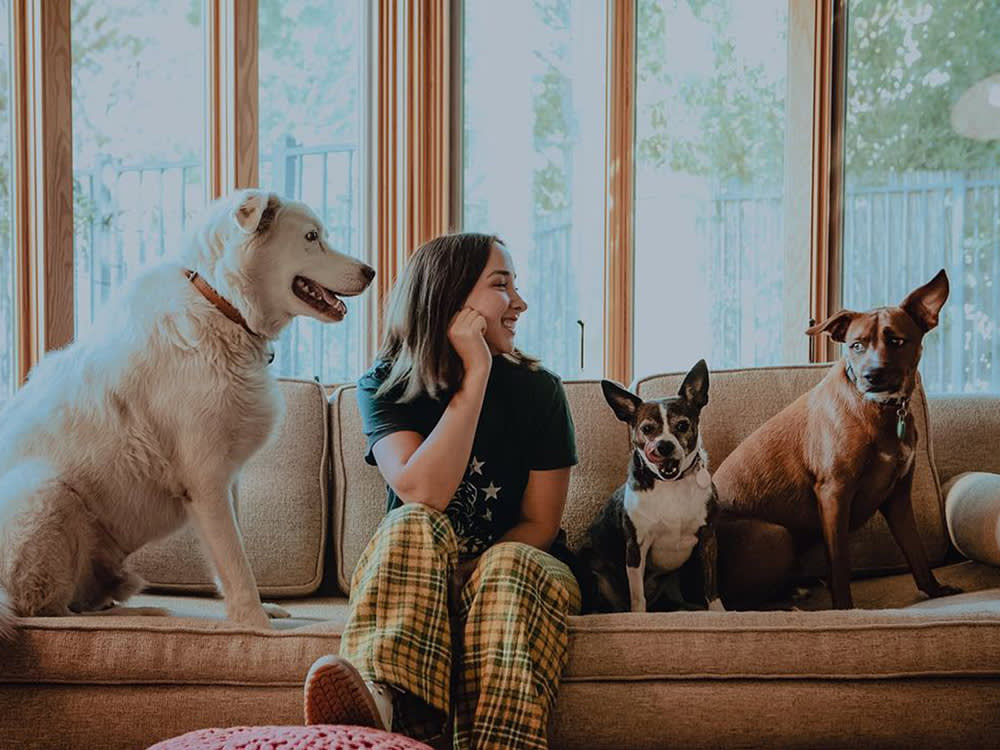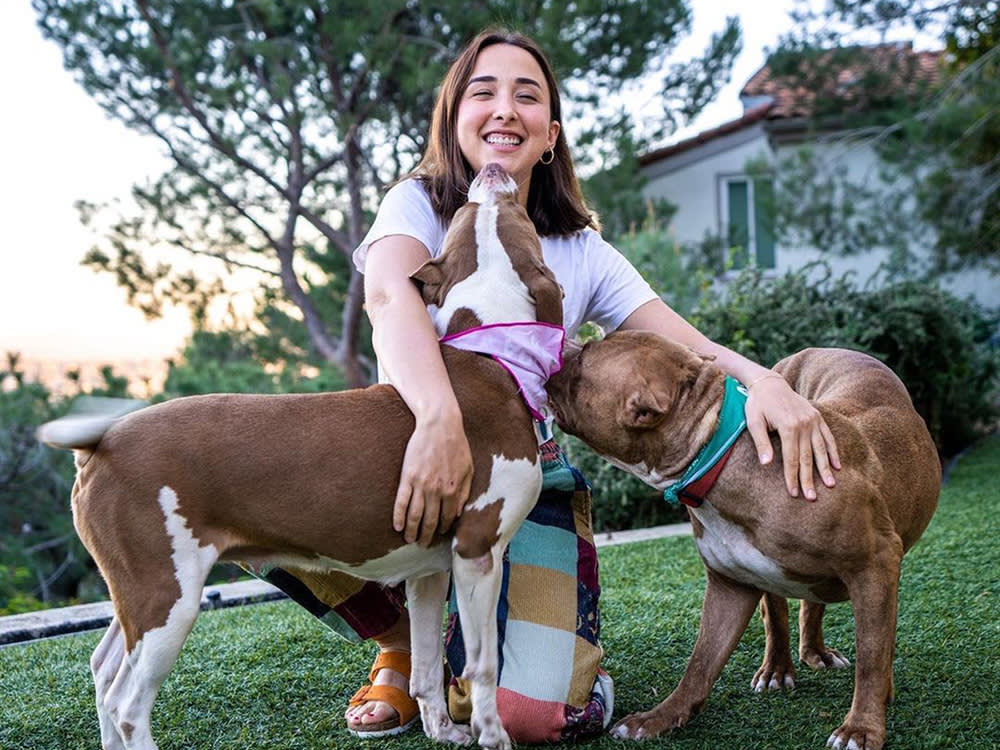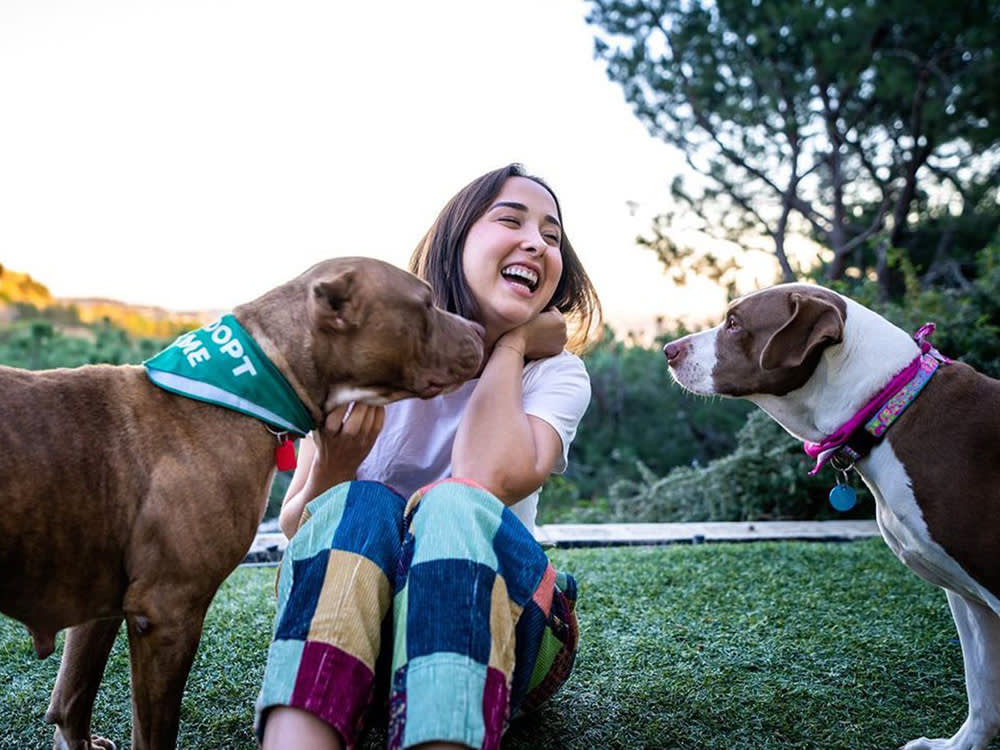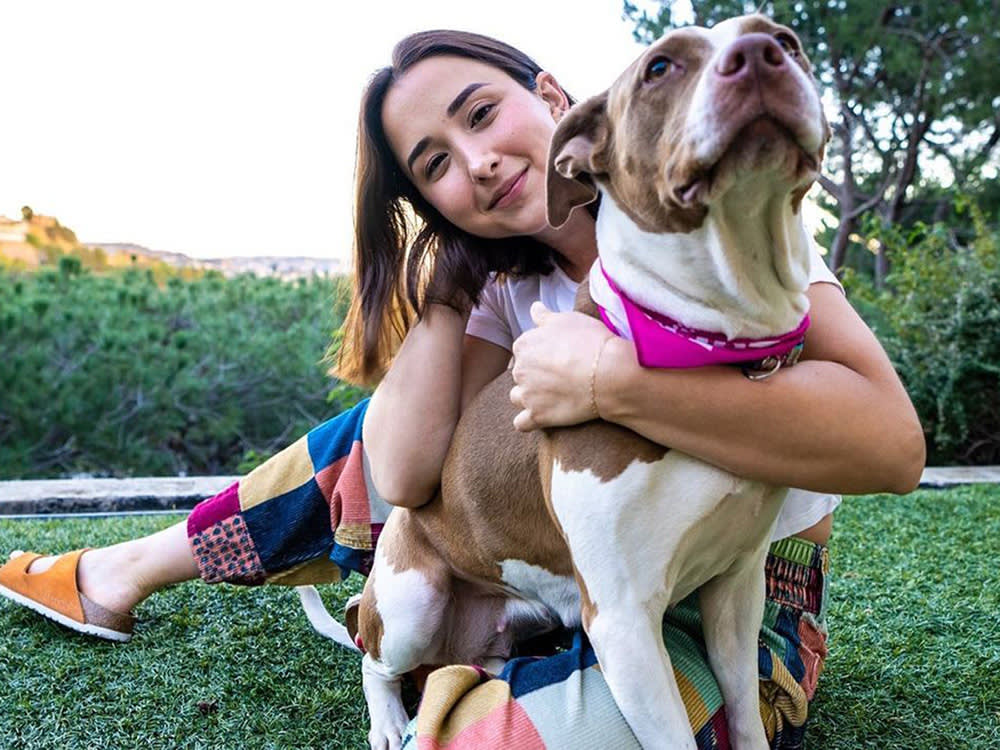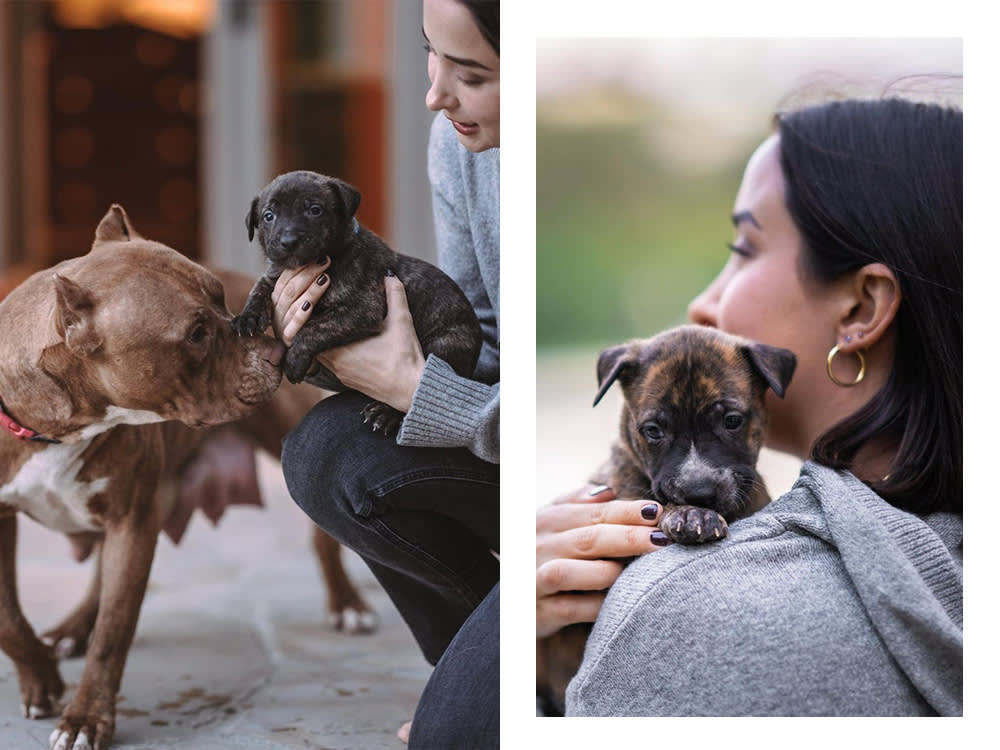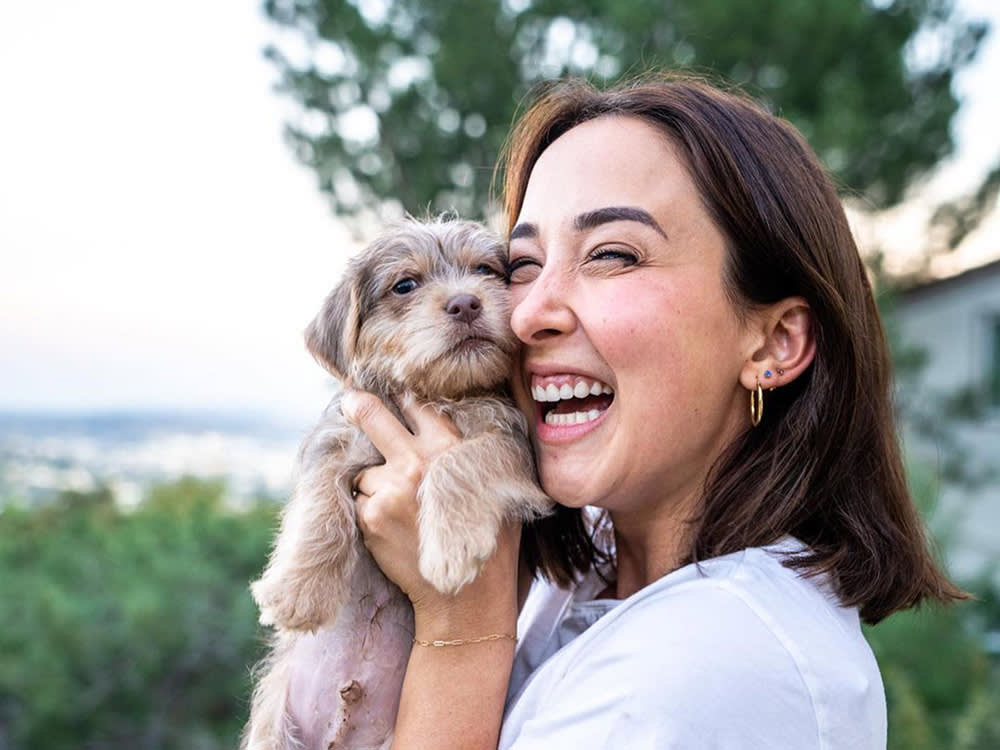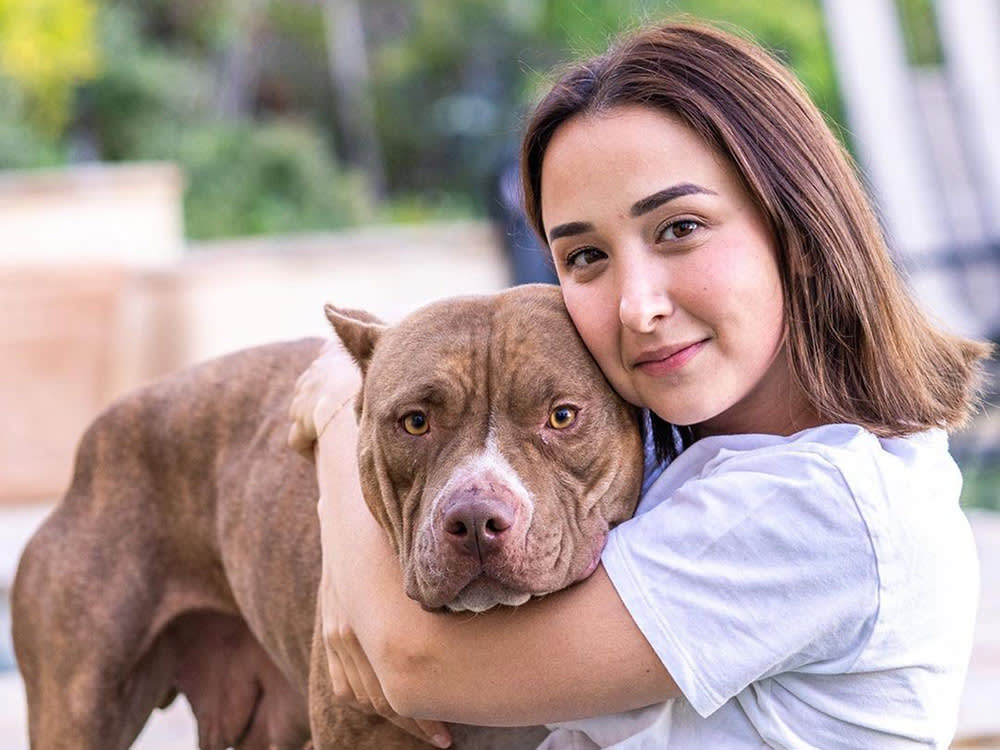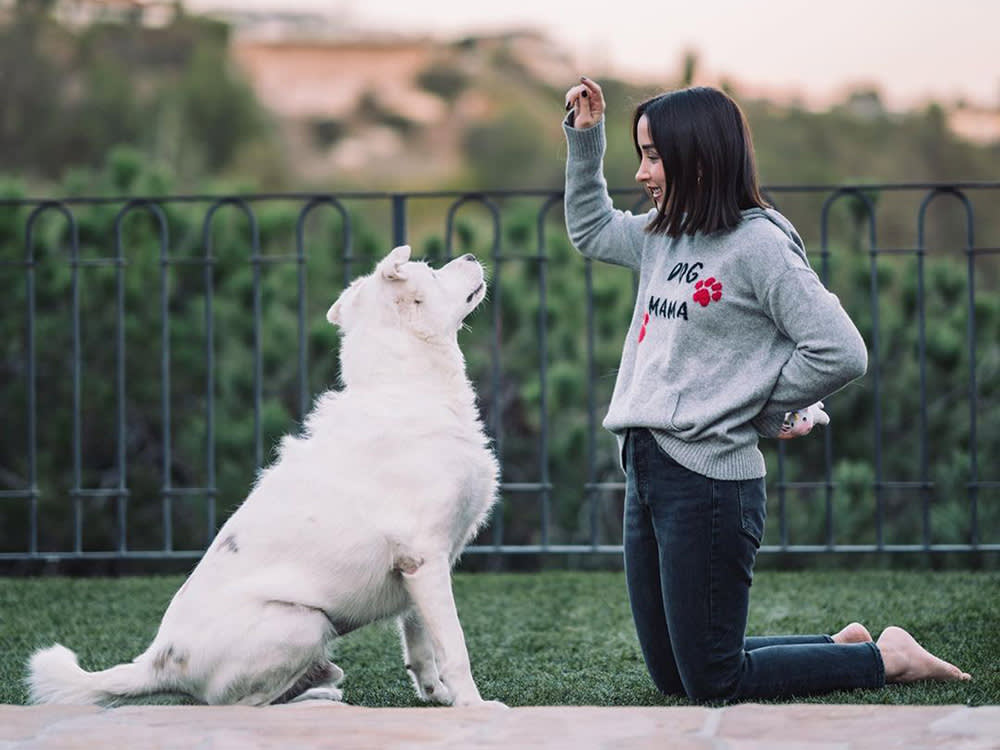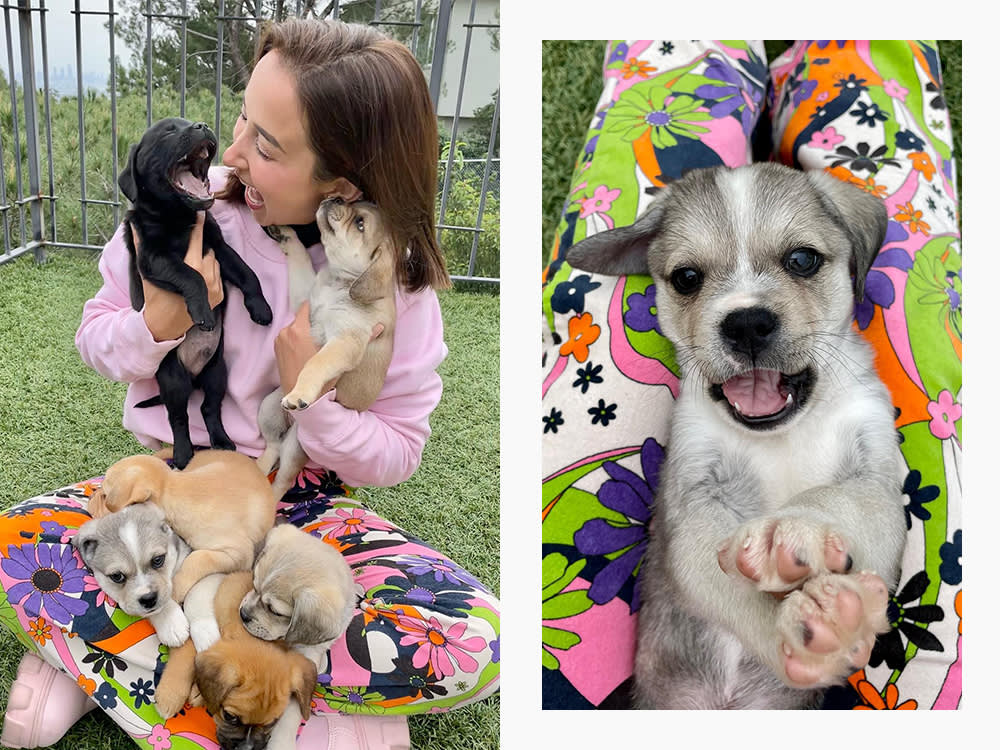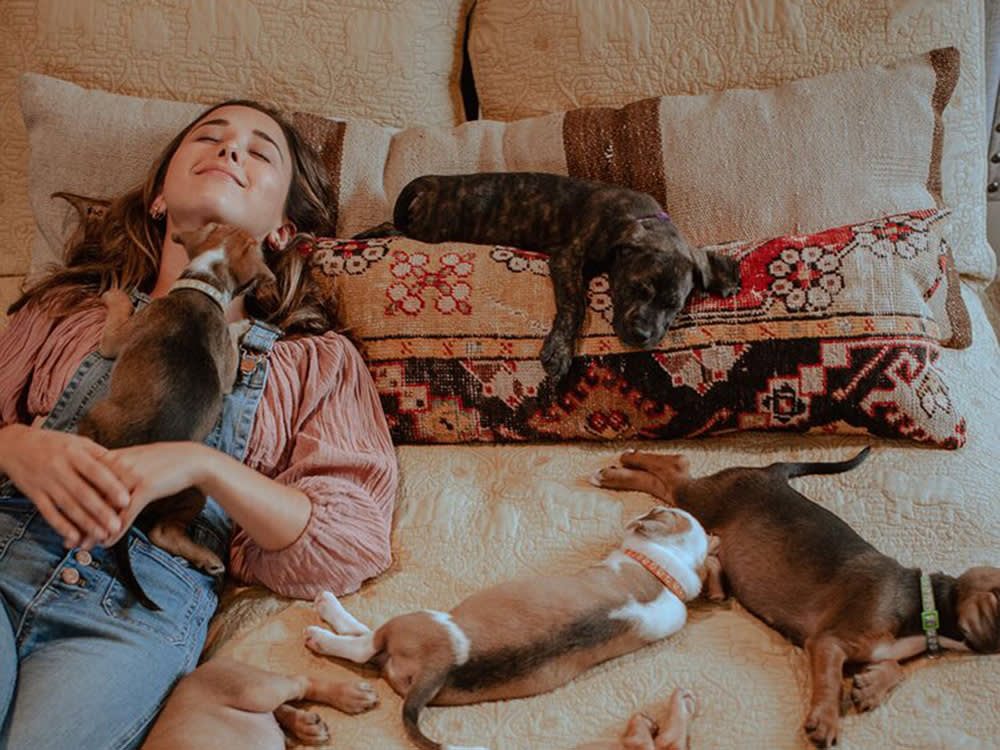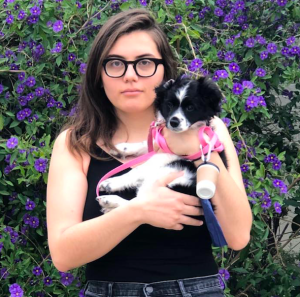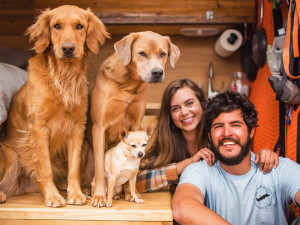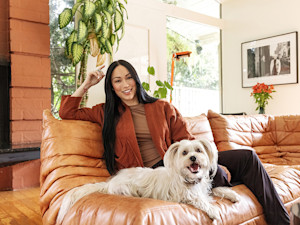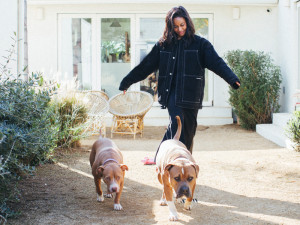Victoria Lily Shaffer Wrote the Book on Dog Rescue
How the author and founder of Pup Culture Rescue is fusing her experience in the entertainment industry with her passion for animal advocacy.
Since adopting her first dog of her own 10 years ago, Victoria Lily Shafferopens in new tab has been dedicated to spreading puppy love. She grew up visiting the set of the Late Show with David Letterman, where her dad Paul Shaffer served as musical director, so it was only natural that she would find a way to combine her natural aptitude for entertainment with her love for dogs. At the beginning of her career, this wasn’t the easiest task — what with late night shooting and early morning dog exercising — but she found a way to meld her two passions in a few creative ways: an iHeart Radio podcast Tails of the Cityopens in new tab, Instagram Live series COVID-K9opens in new tab, and a book, Pup Culture: Stories, Tips, and the Importance of Adopting A Dogopens in new tab.
Now, with her new nonprofit Pup Culture Rescueopens in new tab, she’s giving back to canine-kind by making it easier for others to adopt in the Los Angeles area. We caught up with Shaffer to chat about how adopting her own dogs inspired her rescue work, fostering litters of puppies, and getting the likes of Dan Levy and Glenn Close to contribute to her book. Oh, and how you can help!
Before we jump into all the rescue pups, tell me about your personal pets.
From oldest to youngest, there’s Rue; she’s a Boston Terrier Chihuahua, and she is going to be 10 this month. Second in line is Echo; he’s a Great Pyrenees / Australian Shepherd mix. He is nine and a half, but you would think that he’s years older than Rue just because of his size. He’s 95 pounds and aging pretty quickly these days.
Then our baby is Alfie; he is a Mexican street dog, really. His DNA test said that he was a Boxer / Akita mix, but he looks like every other Mexican street dog. He’ll be two in July and he is a special-needs dog. I raised him from two weeks old because his mother got mastitis and I had to bottle-feed him. He has this cleft paw and the leg that paw is on is significantly shorter than all his other legs. It’s just sort of underdeveloped, so no one adopted him.
Were you looking to adopt at that time?
We weren’t really looking to add a puppy to the mix ’cause I have two senior dogs, but he sort of just chose us and ended up staying. He’s been an excellent addition to my little pack, and more so he has been my saving grace for these puppies who don’t have mothers and even the ones that do. We call him Uncle Alfieopens in new tab — he’s the greatest puppy raiser of all time. He is just so patient and so gentle with these tiny puppies. He cleans them, he plays with them, he shows them the way. It’s amazing. Rue and Echo are not as patient.
That is so sweet. You adopted Rue and Echo; you weren’t fostering them originally, right?
Yeah, Rue and Echo were kind of where this obsession, you could say — passion is a better word for it — of dog rescue really started. I was 19 and I was going to the New School in Manhattan, living in my dad’s apartment, and I ended up adopting two dogs from the south six months apart. It was the best and the dumbest thing I’ve ever done. They just completely changed my life and the way that I look at rescue. They both have their own problems. Rue’s are more trauma related. She was very scared, very shy.
Echo was the complete opposite: really friendly, extremely high energy. He just kept growing, but he was very sick; he had a lot of stomach issues. I had to overcome both of these problems that they had, and seeing them transform has been so amazing. We’re 10 years in and they’re still transforming. Rue is not even considered a shy dog anymore. She’s so loving, so affectionate; she just melts into your lap. So it’s been a crazy journey. Nineteen-year-old me would have never thought I’d move to LA, host a podcast, write a book, and start a rescue over the next 10 years of my life...but here we are.
How did you like pet parenting in New York as opposed to LA?
I mean, I don’t know how I did it in New York, to be honest. I commend everyone who has multiple dogs in Manhattan through the winter. It is so hard and so cold. Looking back on it, I can’t believe that I survived. I had Rue and Echo and I was like everyone else grinding in New York, working 12-17 hour days as a production assistant. I would be sitting in snow pants and a parka at the dog park at four in the morning before work, which is probably not safe, trying to get my dogs that exercise they needed every day.
But I think it’s a testament to [the fact that] anyone can do it; it’s just, how much time are you willing to commit, and how drastically are you willing to change your lifestyle? And then, what’s the community and the support that you have around you?
Totally. How do you balance fostering dogs and running a rescue with taking proper care of your own pups?
I just make my personal dogs a priority, just like I make it a priority to wake up earlier than usual when I have a litter of puppies so that they can get ample energy out first thing in the morning. Like today, it’s 10am and I have already exercised and fed and cleaned up after the puppies. Then I went to the dog park with my three dogs, and now they’re just chilling, laying in the sun while I sit at this coffee shop because they need their own outings. I would never, ever do anything that made my dogs feel like they’re playing second fiddle. Not to say I don’t give [the fosters] the utmost care, but I do make time to give my own dogs their own attention.
When did you realize that you wanted to write a book?
I didn’t really realize it; that’s sort of the funny part of the story. I have this wonderful person in my life named Dub Cornett; he was the executive producer of a show that I produced called Extra Innings with Bill Murray and Brian Doyle Murray for Facebook Watch. We spent the summer traveling, filming, and bonding over our love of dogs. Through that, he sort of became my unofficial manager; he was at Simon and Schuster talking about something else and they mentioned that they were looking for more animal books, and he said, “I know the perfect person that could write a great book.”
So it was a very serendipitous opportunity. I was like, Do I have enough to say? Do I have the discipline to sit there and write an entire book? But at the same time I was like, I’d be so dumb not to take this opportunity. So I did and it ended up being a much more natural experience than I had expected — it sort of just flowed out of me. It’s probably cliche to say, but I had all the stories already.
What was the impetus for starting a rescue?
There’s not really a story, exactly. I think I am naturally a leader and I definitely enjoy being my own boss, but really it came about when I was working with a fantastic rescue located mainly in San Diego. They were wonderful people, but it’s just like when you have a job and you feel like you’ve done what you can there and it’s time to move up and move on. I knew I could start my own rescue in Los Angeles and do it my way. So now I get to be a lot more involved and meet every single dog that comes through our rescue.
Why did you decide to include other voices in the book, and how did you get celebrities like Vanessa Williams, Tony Bennett, and Glenn Close to contribute?
You know, I’m aware that not everyone is going to listen to me. I have a very specific demographic. I really wanted to add some other perspective, and it certainly helps to have some notable people speak about rescue and having a dog — but that was just a crazy experience in itself because it didn’t take much. It’s really a testament to how much people love their dogs, because they all instantly said yes.
If you ask certain celebrities to speak about themselves, they may not be so willing, but if you ask them, “Can you speak about your dog and only your dog?” that’s not something they get asked so often. They were all more than willing to share things about their dogs and send photos, and it was just really fun. I still am shocked that these people who have busy schedules were willing to contribute to my book.
What pups does Pup Culture have for adoption right now?
We have some amazing dogs and puppies right now! To name a few, Phoebeopens in new tab — who we pulled off the euthanasia list with a fractured leg — is all healed and ready for her forever home. Soulopens in new tab is the most gorgeous Husky mix who is seven months old and loves to swim. And Arlo, a seven-year-old Chihuahua, would love to be your little couch potato!
I hope they get adopted soon! How can people who want to help get involved at Pup Culture?
The best way to get involved in rescue is to take the plunge and start fostering. Fostering is completely free and makes the biggest impact. As a foster-based organization, we are unable to save dogs without having a foster lined up. So please consider opening your home to a dog in need!
